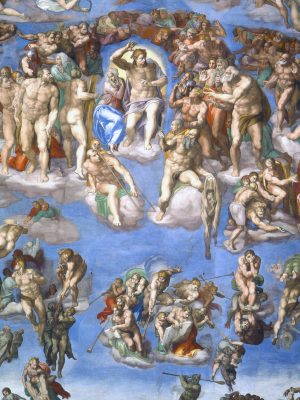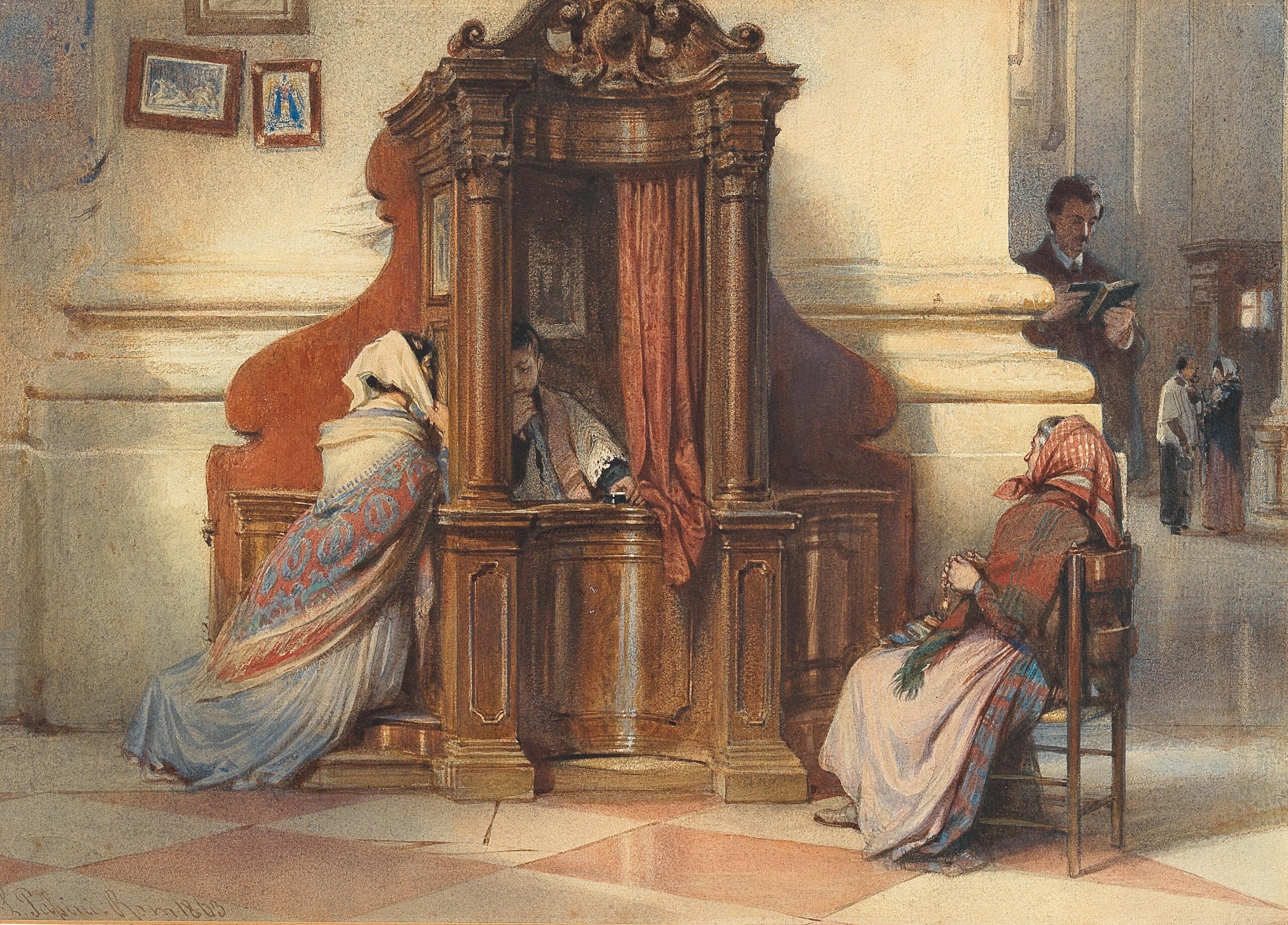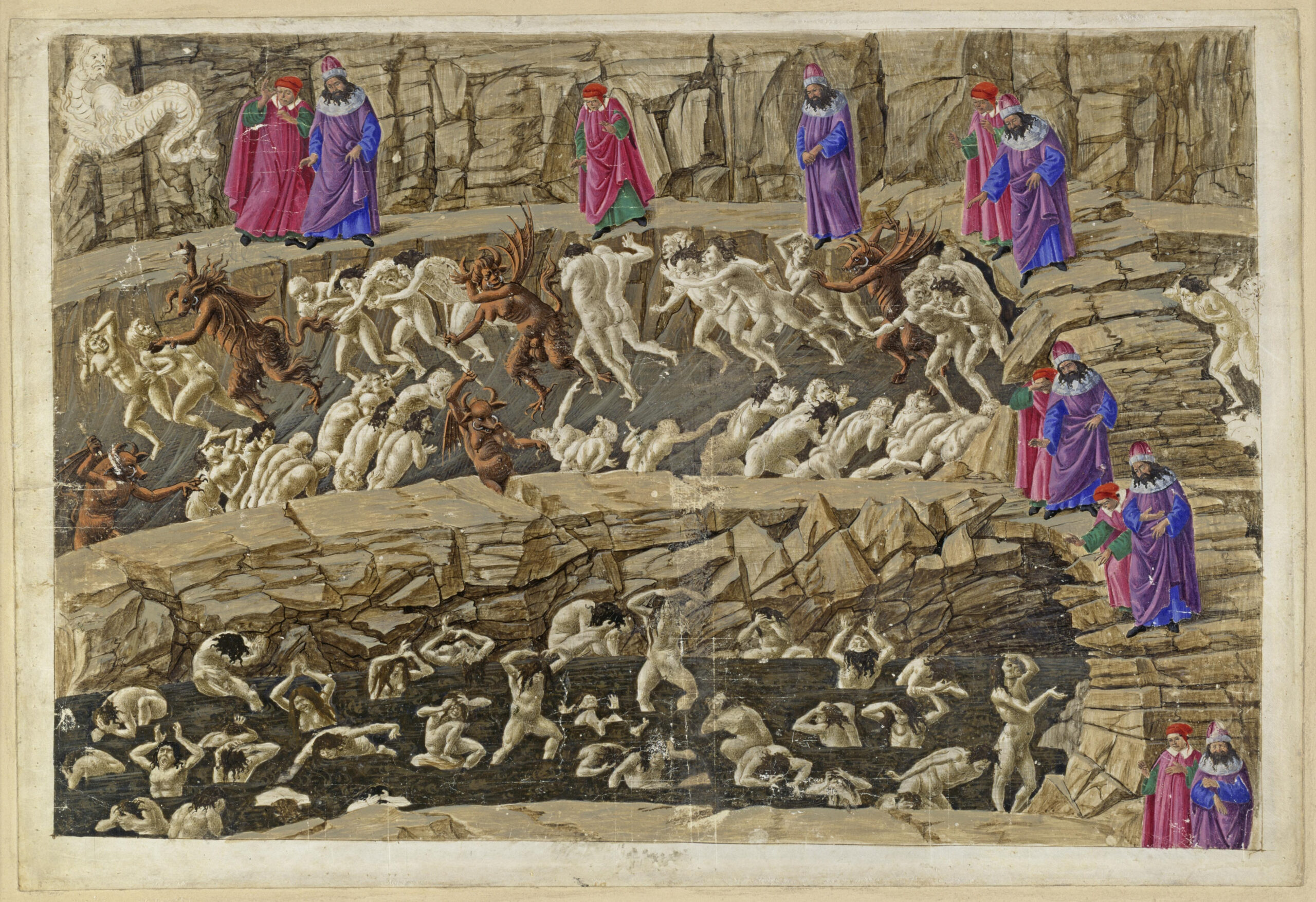St. Robert Bellarmine, Doctor of the Church, dispels all doubts and lies about Hell in his great work, Hell and Its Torments. This excerpt examines the common heresy that no one will be damned, finding the source of this lie in the devil and self-love.
My dear people, it is wondrous what a persuasive force lies in love, damnable self-love. For it is, as it were, persuasion itself. It is mighty by nature, and such a smooth-tongued matchmaker that, through its suggestion, nearly all people easily believe that they will pay either no penalties at all, or brief and meager ones, even though they live unrighteously and wickedly. Now this was the origin of that famous opinion of certain philosophers who, as Aristotle relates, attributed excellent deeds to themselves and desired to be believed and regarded by others as being the authors of these deeds; while, on the other hand, they assigned to a certain external cause all fault of crimes and outrages which they sometimes committed. Thus, if they acted well, they wished to be rewarded and, if badly, they wished to pay no penalty.
From the same root, in turn, arose these errors:
Some people had believed that no penalties await Catholics, even those who lead corrupt lives.
Still others had, by their own verdict, dispensed from eternal punishment not only Catholics but heretics as well, since the latter had once been Catholics!
Yet others had asserted that no one, whether Catholic or heretic, who has been initiated by the Sacrament of Baptism can be brought to everlasting torture.
Others, going further yet, had thought that all men, whether Christian, Jew, or pagan, are to be saved at the Last Judgment, either through their own merits or the advocacy and suffrages of others.
There had even been people who promised the hope of pardon and the obtaining of eternal salvation not only to men, but to the devils in Hell!
What else but accursed self-love has nowadays brought it about in some people that only sluggishly and with difficulty can they comprehend that the peril of eternal and unendurable tortures is hanging over them. Indeed, these people foolishly reason with themselves and say: “Surely, God would never have redeemed me at so great a price and endured so many things here on earth for my sake, if on account of a single blasphemy or some other crime, He had it in mind to bind me over to an everlasting dungeon!”
Truly, my dear people, we must counter this false and pernicious opinion and show upon what a weak foundation it rests. Let us say that our king comes to love some obscure common man, adorns him with public offices and finally places him in command of the beautiful and fully-equipped citadel of his own empire. Now let us say that this person conspires with enemies against his own king and allows the citadel committed to his care to come into their hands. If it should happen by some issue of events that this man were captured and brought into his king’s presence, what do you suppose the king would do with him? Would the fact that the king once dearly loved that traitor deter him from pronouncing upon him the penalties due to traitors? Indeed, the penalties would be atrocious, and so much the more so as the benefices previously conferred upon him had been greater.
So it is with us. Even though God has loved us with a mighty love and has sent His Son to us and willed that He suffer and endure so many things for our liberation, yet despite this, He will still punish us with eternal tortures if we desert to the camp of the enemy and betray the citadels of our souls to demons.
What shall we say about the damned angels? Was not the Prince of Devils once the Prince of Angels? If, therefore, the greatest, wisest, and most eminent of all the angels was thrust out of Heaven for a single sin and hurled into the Abyss, how comes it that we, who cling to the slime of innumerable sins, flatter ourselves concerning the benevolence and kindness of God? What does it matter to object that God afflicted not only angels, but even His very Son because of sins?
My dear people, there is nothing that God loves more mightily than His own true and natural Son, yet, when the Son took our sins upon His shoulders and professed Himself willing to offer satisfaction for them, God smote Him and, as the prophet Isaias says, bruised Him “in infirmity” (Is. 53:10). He wished Him to bear sorrows and tortures which no human being has ever endured here on earth. Great, therefore, and implacable is the hatred of God against sin, when in His own Son He so severely avenges the crimes of others!
ooo
This article is taken from a chapter in Hell and Its Torments by St. Robert Bellarmine which is available from TAN Books.








